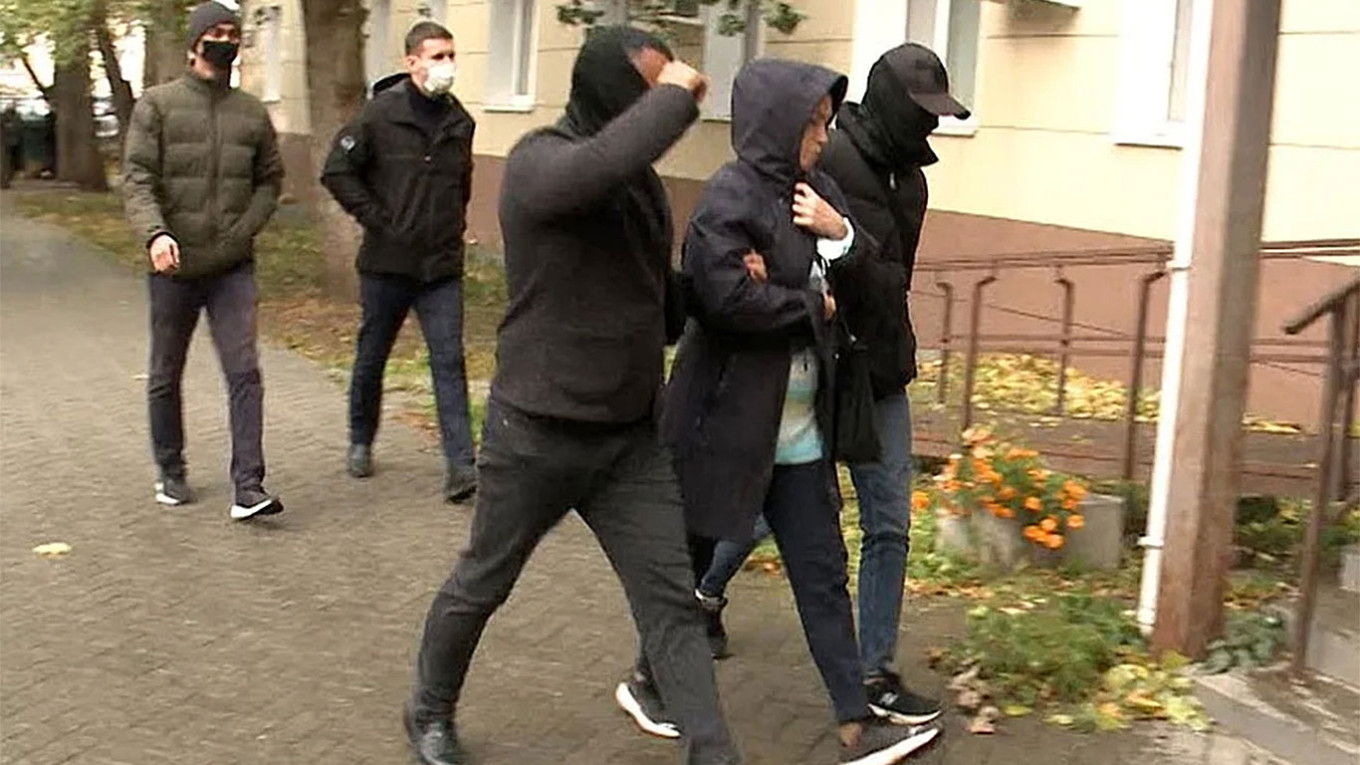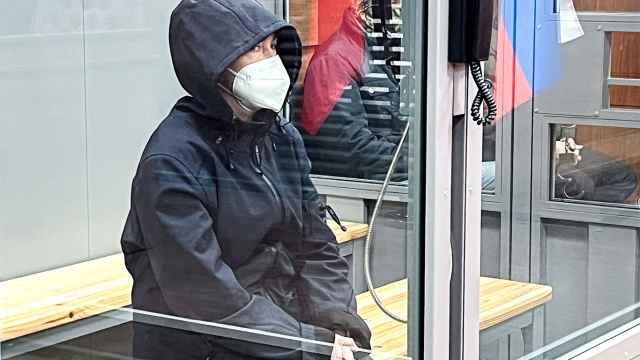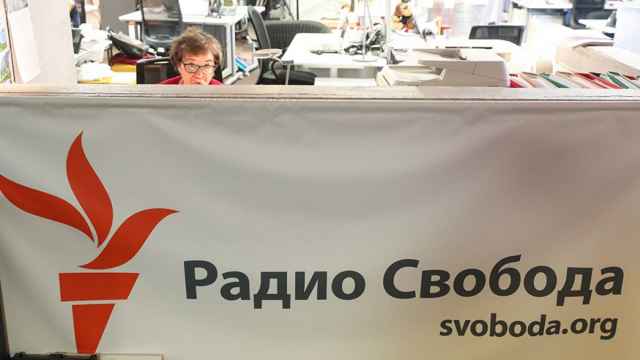The arrest of journalist Alsu Kurmasheva, an editor with the U.S.-funded Radio Free Europe/Radio Liberty’s (RFE/RL) Tatar-Bashkir service, in Russia came as shocking and devastating news to those who knew her.
Kurmasheva, a dual Russian-U.S. citizen of Tatar origin, was detained in Kazan, the capital of the republic of Tatarstan, on Wednesday and charged with failure to register as a foreign agent, according to her employer.
“What happened [to Kurmasheva] is a terrible tragedy. I wouldn’t wish it upon anyone to fall into the clutches of the regime,” Tatar political expert Ruslan Aysin, who was personally acquainted with the journalist, told The Moscow Times.
Though Kurmasheva lives in the Czech Republic with her husband and two children, she returned to Tatarstan for a family emergency in May and was first detained when attempting to travel back to Prague in June.
The authorities confiscated both her American and Russian passports upon her initial detention and later issued her a fine for failing to declare her U.S. citizenship to Russian authorities.
Kurmasheva, according to RFE/RL, was waiting for the authorities to return her travel documents and was hoping to fly back to her family before Wednesday’s unexpected detention.
Although RFE/RL and its regional affiliates are labeled “foreign agents,” Kurmasheva herself has not been designated as one.
Kurmasheva is the second American journalist to be detained in Russia this year after Wall Street Journal reporter Evan Gershkovich, who was detained in March on charges of espionage that he, the U.S. government and his employer deny.
The United States has not yet commented on her detention.
She faces up to five years in prison if found guilty of violating Russia’s “foreign agents” law.
A native of Kazan, Kurmasheva has devoted both her professional and personal life to advancing causes and shedding light on the life of indigenous people and minorities in Russia’s ethnic republics, including Tatarstan, Bashkortostan and Mari El, people who know her told The Moscow Times.
She was particularly passionate about telling the stories of indigenous non-Slavic women of the Volga-Ural region and promoting the use of her native Tatar language, her friends said.
“As a mother, as a woman, as a public figure and as a professional, she always lived for Tatar language and for Tatarstan,” said Kurmasheva’s friend Alima Salakhatdinova.
Salakhatdinova described Kurmasheva as an “exemplar” and “admirable” parent who was passionate about passing on the Tatar language and traditions to her two children — and who was also an avid lifelong learner herself.
Kurmasheva’s voice is well-known to the thousands of Tatar learners worldwide who have listened to audio lessons and books that she narrated for RFE/RL’s multimedia Tatar-language education project “Äydä! Online.”
“She was very passionate about creating content and finding new opportunities for teaching the Tatar language,” Salakhatdinova told The Moscow Times.
“We have been listening to fairy tales and novels narrated by Alsu [in Tatar] and then today I saw [a video of] her in handcuffs, being escorted by masked men,” she added, calling the experience “surreal.”
Kurmasheva is currently awaiting a court hearing at a temporary detention center in Kazan some 800 kilometers east of Moscow.
In addition to the charges of violating Russia’s foreign agent law, authorities may be planning to accuse Kurmasheva of collecting information about the Russian military with an aim to deliver it to foreign entities and “discredit” the country, regional news agency Tatar-Inform reported, citing a source.
Kurmasheva, according to investigators, had obtained information about mobilized employees of a university in Tatarstan and used this information to create “analytical materials,” the news agency said.
Her arrest, according to political expert Aysin, was likely executed on Moscow’s orders against the wishes of the Tatarstan government, which prefers to attract as little media attention to the republic as possible in hopes of preserving its positive international reputation.
Her efforts to shed light on the lives and cultures of Russia’s ethnic minorities, who have been subjected to increased pressure from the Kremlin — including by being sent off to fight in Ukraine — could also be an underlying reason for the arrest, Aysin said.
“I think the fact that she was working for RFE/RL ... was less important than that she was a person who covered the issues of nationalities,” Aysin told The Moscow Times.
A Message from The Moscow Times:
Dear readers,
We are facing unprecedented challenges. Russia's Prosecutor General's Office has designated The Moscow Times as an "undesirable" organization, criminalizing our work and putting our staff at risk of prosecution. This follows our earlier unjust labeling as a "foreign agent."
These actions are direct attempts to silence independent journalism in Russia. The authorities claim our work "discredits the decisions of the Russian leadership." We see things differently: we strive to provide accurate, unbiased reporting on Russia.
We, the journalists of The Moscow Times, refuse to be silenced. But to continue our work, we need your help.
Your support, no matter how small, makes a world of difference. If you can, please support us monthly starting from just $2. It's quick to set up, and every contribution makes a significant impact.
By supporting The Moscow Times, you're defending open, independent journalism in the face of repression. Thank you for standing with us.
Remind me later.







